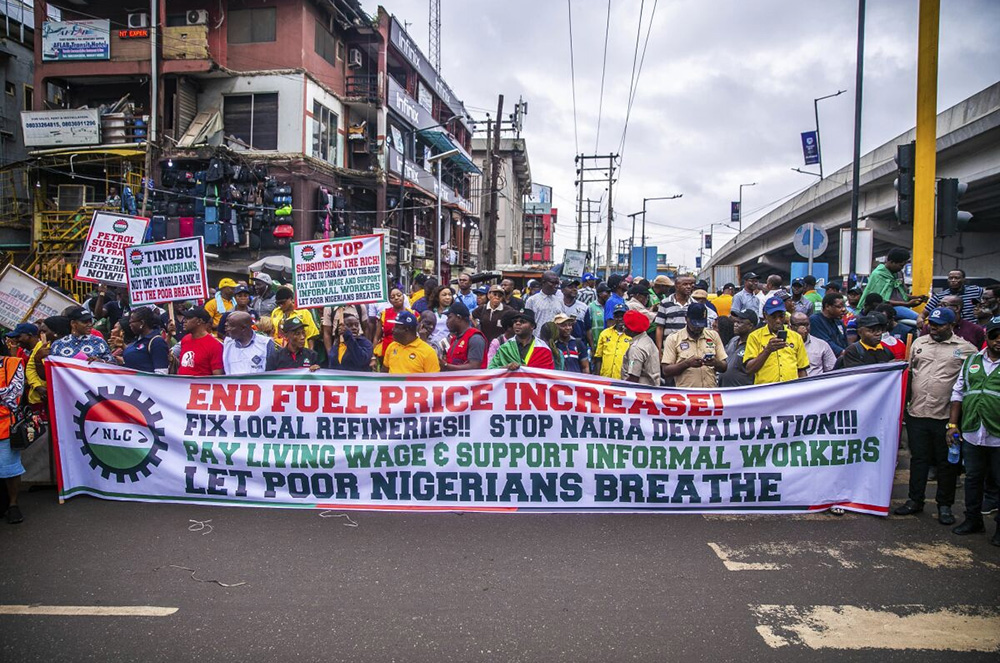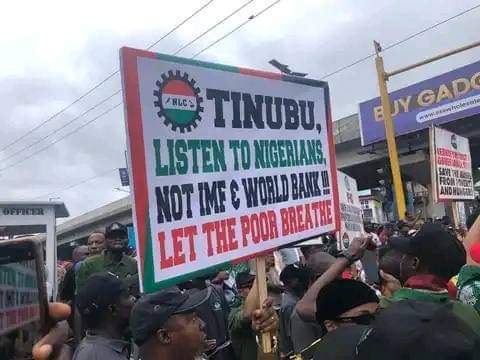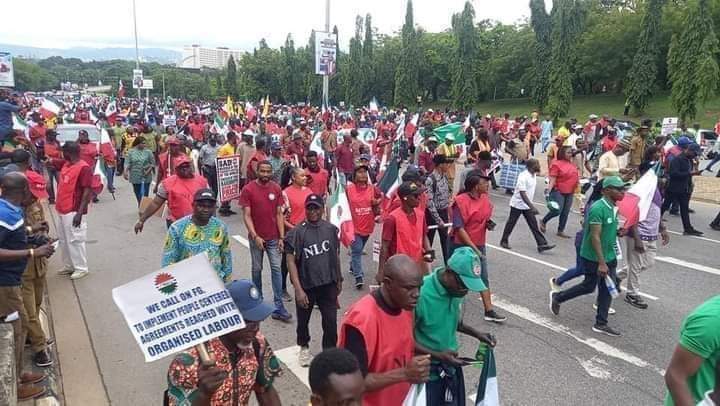Whilst looking to be a main proponent of ECOWAS invasion into Niger, it seems Tinubu who is actually has a court case against him as an illigitmate president and drug lord, is also occupied with with problems in his own backyard Nigeria.
Labor unions in Nigeria took to the streets to protest the escalating cost of living under President Bola Tinubu’s new administration. The unions, representing government workers, expressed dissatisfaction with the government’s response to easing hardship and accused the president of failing to cushion the impact of certain policies, such as the suspension of costly subsidies. This move has led to a doubling of gas prices, causing a ripple effect on food and commodity prices.

Protests spread across the nation, prompting union leaders to meet with President Tinubu to discuss the situation. The president made some commitments in response to the protests, which the unions will deliberate upon.
In May, President Tinubu eliminated a subsidy that had cost the government billions of naira, and the central bank also ended its multiple exchange rate policy for the local currency, aiming to bolster government finances and attract investors. However, these decisions have exacerbated the struggles of millions of Nigerians who were already dealing with surging inflation and high rates of multidimensional poverty.

Transportation costs have more than doubled in many cities since the subsidy removal, making it difficult for people to move around, leading to an increasing number of individuals walking to work. The labor unions have proposed salary increases, but the federal government has yet to act on this proposal.
The protesters highlighted the urgent need for action to address the skyrocketing prices of essential goods. Usman Abdullahi Shagari, one of the demonstrators, shared his personal struggles in providing for his family of five children due to the steep increase in food prices.

The situation in Nigeria remains tense as citizens demand more comprehensive social welfare interventions to alleviate their hardship. President Tinubu’s administration is under pressure to take swift action to address the concerns of the labor unions and the wider populace. As the protests continue, the government must find ways to stabilize the cost of living and ease the burden on ordinary Nigerians grappling with the impact of economic reforms.











